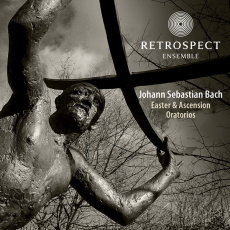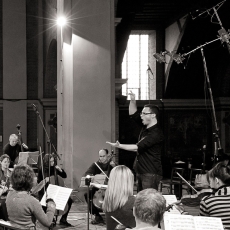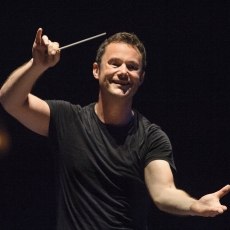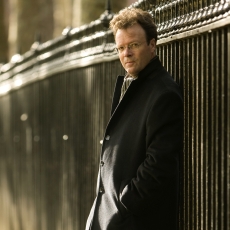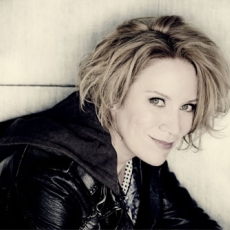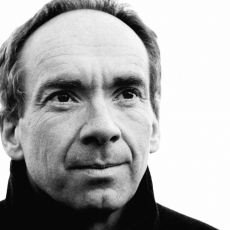Retrospect Ensemble - Bach Oratorios - San Francisco Classical Voice
J.S. Bach wrote a great deal of music that verged on unstaged opera - music with singers and a plot, only no stage action. He composed dialog cantatas, where the soul converses with God, and secular cantatas, where various allegorical characters gather to praise a local scholar, abstract virtue in the person of Hercules, or whatever else was required at the time. And then he wrote a few that give narrative bits of the Christian Gospels. Two of these - the Easter Oratorio (BWV 249) and the Ascension Oratorio (BWV 11) - are brought together on a new recording by the Retrospect Ensemble, published by Linn Records.
Bach is known as an oratorio composer mainly for the Christmas Oratorio, which is unfortunate - not because of any defect in the work, but because it's actually six separate cantatas, meant to be performed over six successive days, whereas now it's a three-hour-plus behemoth to be listened to all at one go. That is the sort of scale Bach reserved for precious few undertakings - really, only for the Passions and the B-minor Mass.
The two pieces here are on a much smaller scale, that of a middling-sized Bach cantata. Like the Christmas Oratorio, they are made up largely of repurposed music from secular cantatas that were written for particular occasions and hence weren't likely to receive a second performance with their original texts (even if Bach had had occasion to celebrate so-and-so's name-day more than once, the last thing he could do is reuse the music he'd written for it last time). Among "green" composers - enthusiastic recyclers - Handel probably has pride of place, yet Bach isn't so far behind.
So here nearly everything that isn't recitative or sinfonia is self-borrowed, to some degree. Indeed, if you're encountering the Ascension Oratorio for the first time, it's something of a shock to come across the Agnus Dei of the B-minor Mass in the guise of the aria "Ach, bleibe doch, mein liebstes Leben" (Ah, stay, my dearest life), and a bigger one to read that both have their near-literal cognates in a lost wedding cantata.
And why not? A late-Baroque aria generally doesn't get into textual specifics; it sets a mood, an affect. This is why Bach could quite cheerfully take the music he wrote for the baleful spirit of Pleasure lulling Hercules into sleep (in a secular cantata) and use it for the Virgin Mary singing to the Christ Child.
I have not before run across the Retrospect Ensemble, nor its director, Matthew Halls, but I'm impressed. The orchestra and chorus are about middling size for "period" Bach these days (that is, neither one-on-a-part nor big-band - just 14 strings, 18 choristers, and requisite winds and continuo), but they both put out more in sound and sheer vibrancy than the numbers suggest.
The famous Linn audio doesn't hurt. There are a few labels that match Linn's sound quality, but none that surpass it.
The soloists are all excellent. Soprano Carolyn Sampson is a lovely, if (appropriately, in the context) impatient, Maria Jacobi (Mary, mother of James) in the Easter Oratorio‘s "Selle, deine Spezereien sollen nicht mehr Myrrhen sein" (O soul, your spices should consist no more of myrrh). Tenor James Gilchrist is exquisitely gentle in "Sanfte soll mein Todeskummer" (My final agony shall be gentle), with its susurrating recorders and murmuring violins; and as the Evangelist in the Ascension Oratorio he's eloquent without overacting. Countertenor Iestyn Davies sails through "Saget, saget mir geschwinde" (Tell me, tell me quickly) with the sort of ease that was unimaginable from a countertenor a quarter-century ago. Peter Harvey, the bass, has been given the least to do here, but I would like to hear more of him.
